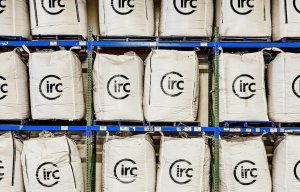
Simplified supply chain integration focus of new Fiber Club
Opinion


Collaboration is the key to mass adoption, companies agree.

29th June 2023
Adrian Wilson
|
Milan
New textile auxiliaries from the Revecol range developed by Erca, of Bergamo, Italy, are being employed by Patagonia and its trim supplier YKK.
The Revecol range is made from waste vegetable oil collected from restaurants and homes and was the subject of a presentation by the three companies, Upcycling Minds Think Alike, at the recent ITMA 2023 textile machinery show in Milan.
“Thanks to our pioneering manufacturing process, Revecol transforms critical waste materials – used vegetable oils – into a cost-competitive line of responsible auxiliaries offering unique characteristics – circular DNA, certification, safety, high performance and applicability on any type of textile fibre, whether virgin or recycled,” said Giusy Bettoni, Erca CEO. “Revecol is the ‘missing piece’ for the production of recycled textiles, allowing circularity at an additional step of the supply chain.”
“Through thoughtful consideration we designed our approach and conversion to Revecol LV-TS to have an outsized impact from the start,” added Matt Swartz, colour and material quality manager at Patagonia. “The real success is seeing this go beyond Patagonia products and spread across supply chain partners, brands and consumers.”
“We are thrilled to be part of this unique three-way collaboration, exemplifying how true upcycling on a mass-production scale is made possible at the centre of garment manufacturing,” said Mike Maekawa, sales and business development manager at YKK Vietnam. “We look forward to the expansion of Revecol across the entire textile industry.”
For Fabio Locatelli, head of Erca’s textile specialties business unit, responsible innovations like Revecol find success when they are embraced and adopted by other industry players.
“One of the most rewarding achievements is not only to see that Revecol can really make a difference, but that leading companies are teaming up with us to utilise it in products that bring the message of sustainability to the end consumer,” he said.
“Success is measured by how widely the market utilises these advancements and what their ultimate impact on the environment is,” Bettoni emphasised. “It is vitally important that new sustainable products and technologies are used on a large scale, otherwise, true change hasn’t taken place and tangible benefits cannot be measured. When it comes to sustainability, the key to success is in strategic partnerships and sharing advancements within the industry, with an eye to expanding it on a mass scale.”

Business intelligence for the fibre, textiles and apparel industries: technologies, innovations, markets, investments, trade policy, sourcing, strategy...
Find out more